Specific English. Грамматические трудности перевода - [19]
II. Переведите следующие предложения на русский язык.
1. Calvin shrugged that away. 2. He told himself that he was unreasonable, he tried to laugh himself out of such pathos. 3. A man could gamble himself to poverty and still be a gentleman, but a professional gambler could never be anything but an outcast. 4. But she shrugged off her momentary annoyance. 5. She would serve tea and delicious sandwiches and leisurely gossip the hours away. 6. Dixon waved him to silence. 7. She smiled a welcome. 8. «He was sunk,«said Wylie, «but I laughed him out of it.» 9. Dr Czinner put his hand under Coral’s elbow and insinuated her out of the compartment. 10. She stepped to the ground and smiled her thanks to John Wilkes. 11. I’m going to drink myself to death. 12. She let him hold her so for a minute, and then shrugged him off. 13. The Swanns had departed on holiday. She had waved them off. 14. At home somebody would be laughed out of such childish conduct. 15. And she too wanted to rise in greater anger and cry him down. 16. I told him that St Thomas Aquinas had bothered too about that very question and he’d better worry it out for himself. 17. «What an embarrassing question!» I said, trying to laugh it off. 18. He handshook his way through the crowds. 19. She revenged herself by screaming the place down and by telling the neighbours what a brute he was. 20. Mr Warburton smiled his approval. 21. He confided to Suzanne his ambition to marry his daughter into the aristocracy.
III. Переведите следующие предложения на русский язык. Обратите внимание на употребление глаголов to talk, to speak, to think в значении переходных.
1. Will was talking common sense. 2. «Oh, shut up!» she cried, feeling a momentary intense relief at being able to speak her feelings. 3. She loved horses and talked horses constantly. 4. I should not write those words. I should not even think them. 5. Alex talked riddles. 6. He disliked talking business with her. 7. The truth at last. Talking love and thinking money. 8. Melly and he were always talking such foolishness, poetry, and books and dreams and moonrays and star dust. 9. He was confused and spoke his thoughts as they came to him. 10. Think practical thoughts, will you?
IV. А. Переведите следующие предложения. Укажите, в каких случаях глагол to show является переходным, в каких нет. Обратите внимание на его многозначность.
1. Show me your hands. 2. Is he showing any strain? 3. He wanted to know what movie was showing on the flight. He said, could I get him another flight which was showing the same movie as the first one? 4. The little old lady sat comfortably relaxed, hands folded daintily in her lap, a wisp of lace handkerchief showing between them. 5. The effect of sleepless nights showed quickly in his work. 6. The priest opened the doors, and they showed again the front garden of evergreens and all. 7. You’ve seen pictures of the clothes worn in Victorian times, haven’t you? Skirts right down to the ground, not even the ankles showing? 8. As before, it took several minutes for Cindy to come to the telephone, and when she did, surprisingly, there was none of the fire she had shown during their previous conversation, only an icy chill. 9. Warren Trent walked stiffly into the bathroom now, pausing before a wall-width mirror to inspect the shave. He could find no fault with it as he studied the reflection facing him. It showed a deep-seamed, craggy face. 10. The house was very pretty, and beautifully built. But it showed all signs of the eleven children. 11. He showed a scar on his forehead as the result of a wound. 12. He was wearing a shirt, a pair of white trousers, and gym shoes through which one big toe showed. 13. The old man hummed to himself, glancing sideways at what the fire showed of the black torn cloth. 14. Pink classical facades peeled off and showed the mud beneath. 15. The schooner showed no light and the doctor only saw it in the darkness because he knew that it was there. 16. His glance showed him a man of about forty-five with short dark hair. 17. The village showed between luxuriant elms.
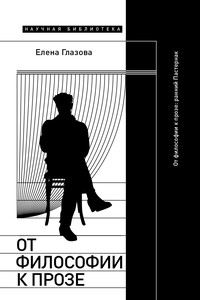
В молодости Пастернак проявлял глубокий интерес к философии, и, в частности, к неокантианству. Книга Елены Глазовой – первое всеобъемлющее исследование, посвященное влиянию этих занятий на раннюю прозу писателя. Автор смело пересматривает идею Р. Якобсона о преобладающей метонимичности Пастернака и показывает, как, отражая философские знания писателя, метафоры образуют семантическую сеть его прозы – это проявляется в тщательном построении образов времени и пространства, света и мрака, предельного и беспредельного.
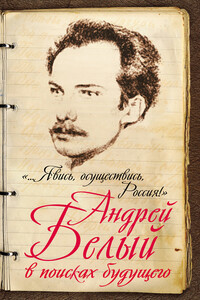
Подготовленная к 135-летнему юбилею Андрея Белого книга М.А. Самариной посвящена анализу философских основ и художественных открытий романов Андрея Белого «Серебряный голубь», «Петербург» и «Котик Летаев». В книге рассматривается постепенно формирующаяся у писателя новая концепция человека, ко времени создания последнего из названных произведений приобретшая четкие антропософские черты, и, в понимании А. Белого, тесно связанная с ней проблема будущего России, вопрос о судьбе которой в пору создания этих романов стоял как никогда остро.
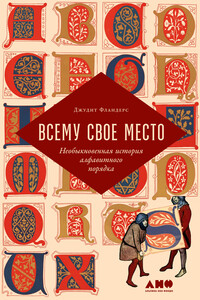
Книга историка Джудит Фландерс посвящена тому, как алфавит упорядочил мир вокруг нас: сочетая в себе черты академического исследования и увлекательной беллетристики, она рассказывает о способах организации наших представлений об окружающей реальности при помощи различных символических систем, так или иначе связанных с алфавитом. Читателю предстоит совершить настоящее путешествие от истоков человеческой цивилизации до XXI века, чтобы узнать, как благодаря таким людям, как Сэмюэль Пипс или Дени Дидро, сформировались умения запечатлевать информацию и систематизировать накопленные знания с помощью порядка, в котором расставлены буквы человеческой письменности.
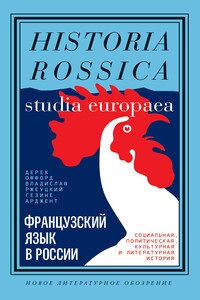
Стоит ли верить расхожему тезису о том, что в дворянской среде в России XVIII–XIX века французский язык превалировал над русским? Какую роль двуязычие и бикультурализм элит играли в процессе национального самоопределения? И как эта особенность дворянского быта повлияла на формирование российского общества? Чтобы найти ответы на эти вопросы, авторы книги используют инструменты социальной и культурной истории, а также исторической социолингвистики. Результатом их коллективного труда стала книга, которая предлагает читателю наиболее полное исследование использования французского языка социальной элитой Российской империи в XVIII и XIX веках.
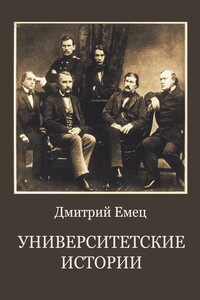
У этой книги интересная история. Когда-то я работал в самом главном нашем университете на кафедре истории русской литературы лаборантом. Это была бестолковая работа, не сказать, чтобы трудная, но суетливая и многообразная. И методички печатать, и протоколы заседания кафедры, и конференции готовить и много чего еще. В то время встречались еще профессора, которые, когда дискетка не вставлялась в комп добровольно, вбивали ее туда словарем Даля. Так что порой приходилось работать просто "машинистом". Вечерами, чтобы оторваться, я писал "Университетские истории", которые в первой версии назывались "Маразматические истории" и были жанром сильно похожи на известные истории Хармса.
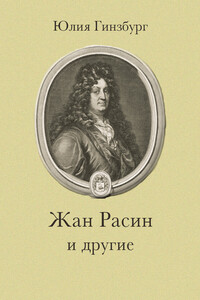
Книга рассказывает о жизни и сочинениях великого французского драматурга ХVП века Жана Расина. В ходе повествования с помощью подлинных документов эпохи воссоздаются богословские диспуты, дворцовые интриги, литературные битвы, домашние заботы. Действующими лицами этого рассказа становятся Людовик XIV и его вельможи, поэты и актрисы, философы и королевские фаворитки, монахини и отравительницы современники, предшественники и потомки. Все они помогают разгадывать тайну расиновской судьбы и расиновского театра и тем самым добавляют пищи для размышлений об одной из центральных проблем в культуре: взаимоотношениях религии, морали и искусства. Автор книги переводчик и публицист Юлия Александровна Гинзбург (1941 2010), известная читателю по переводам «Калигулы» Камю и «Мыслей» Паскаля, «Принцессы Клевской» г-жи де Лафайет и «Дамы с камелиями» А.